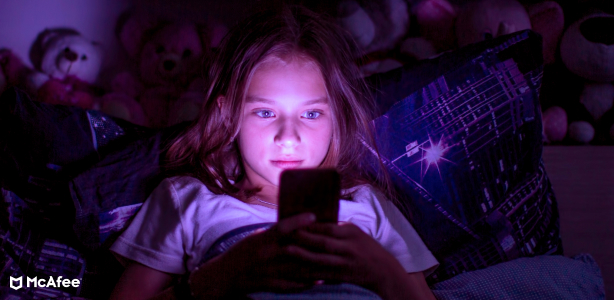As Birbal had once pointed out to Akbar, “There is only one pretty child in this world and every mother has it.” Never has there been such a strong urge to prove this than in the digital age. Parents are making full use of their social media platforms to keep their friends and family updated with the latest happenings in their precious one’s lives. However, are they compromising their children’s privacy and security to satisfy their pride?
The Age of Consent Survey commissioned by McAfee brings to light some interesting facts in India, regarding parental habits of sharing their children’s photos online.
- Parents are aware of the risks of posting images of their children on social media, but the majority are doing it anyway, often without their children’s consent
- 76% of parents say they have considered the images of their children they post online could end up in the wrong hands
- 61.6% of parents believe they have the right to share an image of their child on social media without their consent
Parents Ignoring the Risks?
The McAfee survey reveals that parents are not giving enough consideration to what they post online and how it could affect their children. There are two kinds of risks involved:
- Physical risks: Pictures can be misused to create fake identities, groom victims and morphed and used inappropriately by paedophiles
- Emotional risks: They may cause children worry and anxiety if they fear that the photos may be used to shame or cyberbully them
While parents are aware and concerned about the physical risks associated with posting pictures online, they are less concerned about the emotional risks. The survey reveals that moms consider the embarrassing side effect more than dads, with 45% of dads assuming their children will get over any embarrassing content compared to just 14% of moms. But it is important to consider the emotional effects on kids as they will tend to shape his/her character and future.
How do Men and Women Compare When It Comes to Sharing Pictures?
Most men and women post photos of their children only on private social media accounts, indicating they are aware of the risks. While identity theft worries men more, women are more worried about image morphing. In addition, women are more restrained about sharing pictures of kids under 2 without clothes over social media in comparison to men. But, unfortunately, neither is much concerned about paedophilia. This needs to change! You have to put the ‘stranger-danger’ policy in action well before you start teaching your kids that.
Mumbai Parents Lead in Sharing
Mumbai parents, ahoy! You are tech-savvy no doubt and leave Delhi and Bengaluru way behind when it comes to sharing of kid’s photos online. Though Metro city parents are aware that children may be embarrassed by some of the photos posted and consider photoshopping or morphing of pics as a major potential risk, they still go ahead and share. Whoa! Go easy and THINK well before hitting the ‘SHARE’ button parents; it’s your children we are talking about.
Some Salient India-Specific Findings from The Survey
- 5% of parents post an image of their child on social media at least once a day
- 79% share images on public social media accounts
- 39% of parents don’t consult with their children before posting images of them on social media
- 98% of parents have considered that the images they post of their child on social media may be embarrassing/be something they wouldn’t want posted, but do it anyway
- 6% of parents have/would share an image of their child in their school uniform on social media
- 6% of parents believe they have the right to share an image of their child on social media without their consent
- The average age parents believe they should begin asking their child for consent to post a photo of them on social media is 10, interestingly, the age of responsibility in India is 7
Tips for Safe Sharing of Children’s pics
- THINK.POST: Always think twice before uploading pictures of your child. Will it prove risky or embarrassing for the child later in life? If yes, or in doubt, postpone sharing.
- Disable geo-tagging. Many social networks will tag a user’s location when a photo is uploaded. Parents should ensure this feature is turned off to avoid disclosing their location. This is especially important when posting photos away from home.
- Maximise privacy settings on social media: Parents should only share photos and other social media posts with their intended audience.
- Let family, friends know your views on posting images and tagging: This will help prevent future embarrassments. Return the favour.
- Use an identity theft protection service: The amount of personal data shared online, and the rise in data breach, together escalate the possibility of identity theft. It’s recommended that you use an identity theft protection solution like McAfee Identity Theft Protection to proactively protect your identity and keep your personal data safe from misuse.
Parents, put aside your pride in your child and review the future implications of posting their pictures online. As parents, it’s your responsibility to understand the effects of your social media actions on your child. A few general photographs shared privately may be OK, but it is advisable NOT to turn your social media page into your child’s digital record page. Let your child start his/her digital journey on a clean slate.













